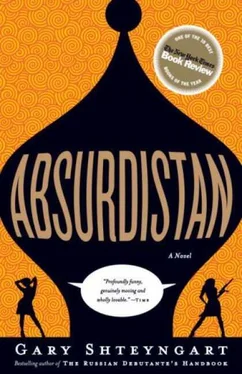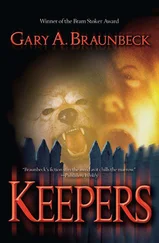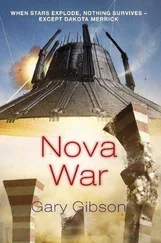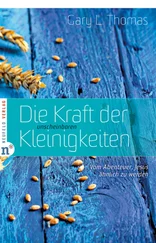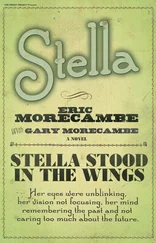I backed away, clutching a passing candy wrapper with both of my big, squishy hands, but they were soon upon me. “Your father was a great man,” said Oleg the Moose, nervously combing back his pompadour, his trademark single antler. “A righteous man. A leader. He loved his people. I still have that 1989 article about him from the American magazine, the one where he’s dancing around with a jug of moonshine. What was it called? ‘ Shabbat Shalom in Leningrad.’ You know, it wasn’t always easy between us, but all our disagreements to the very last were just fights between brothers. I think, in some measure, we’re all sort of responsible for his death. So Zhora and I are going to pledge a hundred shtukas each to the synagogue. Maybe they’ll buy some extra Torahs or something. We’re going to call it the Boris Vainberg Judaica Renaissance Fund.”
A shtuka was a thing, or US$1,000, the basic unit of measurement in my dead papa’s universe. A hundred shtukas was not very much, a week of whoring on the Riviera. I looked down at my pricey German shoes, both covered with a fine iridescent film. What the fuck? Damn polymers floating in from the railroad, likely. I pledged right then and there to donate at least one thousand shtukas, US$1,000,000, to Misha’s Children.
“You know what, let’s make it two hundred shtukas each,” said syphilitic Zhora, picking violently at a back tooth with his pinkie, looking like the bald Chernobyl porcupine they joked about on television. “The cantor said the synagogue needs a new ark. That’s where they stash the Torahs after they’re done singing from them.”
I stood there listening to my father’s killers. Oleg and Zhora were of Papa’s generation. All three had been made fatherless by the Great Patriotic War. All three had been raised by the men who had managed to avoid battle, the violent, dour, second-tier men their mothers had brought home with them out of brutal loneliness. Standing before the menfolk of my father’s generation, I could do nothing. Before their rough hands and stale cigarette-vodka smells, I could only shudder and feel, along with fright and disgust, appeasement and complicity. These miscreants were our country’s rulers. To survive in their world, one has to wear many hats—perpetrator, victim, silent bystander. I could do a little of each.
“How’s your health?” I asked syphilitic Zhora.
He made a circular motion around his crotch. “Eh, you know, a little better, a little worse. Every day something new. The key is to catch it at the early stage. There’s a new venereal clinic on Moskovsky Prospekt—”
“If you don’t want to end up like Zhora, better put a sock on your gherkin,” Oleg the Moose said with fatherly solicitude. We laughed quietly. “By the way, how’s it going with your visa situation?” he asked. “I think you’ll have better luck with the American consulate now that your father is gone. Even the worst tragedies often bring with them something positive.”
“Hey, if you go to Washington, tell my son to stop diddling Spanish girls and tend to his studies,” said Zhora. “Hold on a minute! I’m going to give you his e-mail address at the university.” He handed me a scrap on which he had written, with curly Cyrillic flourishes, Zhora2@georgetown.edu. “And tell him nothing less than Michigan for law school, that little popka. ”
We laughed again, the prickly voltage of fraternity coursing through our triumvirate, leaving me a little shocked. “There’s a funny anecdote about three Jews—” I started to say, but was interrupted by a starchy, provincial scream.
“Murderers! Animals! Swine!” Lyuba was shrieking from the open grave. “You took my Boris! You took my prince!”
Before we knew what was what, she made a run for Oleg and his cousin, her skinny arms windmilling past the large patriarchal Vainbergs and all the small fry with their orange perms and leather fanny packs. Tear-streaked and crimson, with a child’s delicate pink lips, Lyuba’s face looked uncharacteristically young, so young that I instinctively extended a hand to her, because this kind of youth does not survive long in our Leninsburg; it’s burned out like those malicious orange freckles that had once ringed her nose.
“Lyuba!” I shouted.
Captain Belugin acted quickly, shoving the poor widow under his blazer and gently herding her away from the funeral party, toward the railroad track with its overturned polymer cars. He was chanting comforting mantras above her cries (“All is normal…it’s only nerves”), although I could hear her last muffled words: “Help me, Mishen’ka! Help me strangle them with my very hands!”
I turned away from her, looking instead to Sarah, the pretty Jewess, the prize of our people, proffering us a collection of her saddest smiles and also something smooth and pale and blooming in her hands. Gardenias.
Soon it was time to bury Papa.
7

Rouenna in Russia
Ghetto Daze, Part II
“I didn’t come all the way to freaking Russia to look at no oily paintings, Snack,” Rouenna said. We were in the Hermitage, in front of Pissarro’s Boulevard Montmartre on a Sunny Afternoon. Rouenna was flying out the next day, and I had thought she might want to check out our city’s unequaled cultural patrimony.
“You don’t want no oily…?” I stammered. We had spent five years loving each other in New York, and I still had no idea how to respond to the vagaries of Rouenna’s mind, which in my imagination resembled a gorgeous ripe sunflower being pummeled in a summer storm. “You don’t like late-nineteenth-century impressionism?” I said.
“I came here to be with you, bobo, ” she said.
We kissed: a 325-pounder in a vintage Puma tracksuit and a brown woman in a push-up bra. I could feel the babushka guards creaking with racial and aesthetic indignation, but that only made me kiss Rouenna harder as I ran my big, squishy hand along her arched back and into the open crevice of her two-fisted ass.
We heard a cough filled with phlegm and suffering. “Behave yourself in a cultured manner,” an old voice instructed.
“What the bitch say?” Rouenna asked.
“The old people will never understand us,” I sighed. “No Russian ever can.”
“So we outie, Snack?”
“We outie.”
“Let’s go home and cuddle.”
“You got it, shorty.” During her two weeks here, I had tried to show Rouenna a picture of life in St. Leninsburg in 2001. I’d bought us a motorboat and a sea captain and taken her around the canals and byways of our Venice of the North. She’d let out a few “ooohs” and “dangs” and “aw, dips” at some of the more spectacular palaces, their fading pastel coloring more appropriate for South Beach than for just south of the Arctic Circle. But, like most poor people, she was less a sightseer at heart than a dedicated economist and anthropologist. “Where the niggaz at?” she’d wanted to know.
I assumed she meant people of modest means. “They’re everywhere,” I said.
“But where the real niggaz at?”
I didn’t want to take her to the outer suburbs, where I hear people are subsisting practically on rainwater and homegrown potatoes, so I took her to the nether reaches of the Fontanka River, the quasi-industrial area our grandparents called Kolomna. I hasten to paint a picture of this neighborhood for the reader. The windswept Fontanka River, its crooked nineteenth-century skyline interrupted by the postapocalyptic wedge of the Sovietskaya Hotel, the hotel surrounded by symmetrical rows of yellowing, waterlogged apartment houses; the apartment houses, in turn, surrounded by corrugated shacks featuring, in no particular order, a bootleg CD emporium, the ad hoc Mississippi Casino (“America Is Far, but Mississippi Is Near”), a kiosk selling industrial-sized containers of crab salad, and the usual Syrian shawarma hut smelling invariably of spilled vodka, spoiled cabbage, and some kind of vague, free-floating inhumanity.
Читать дальше
